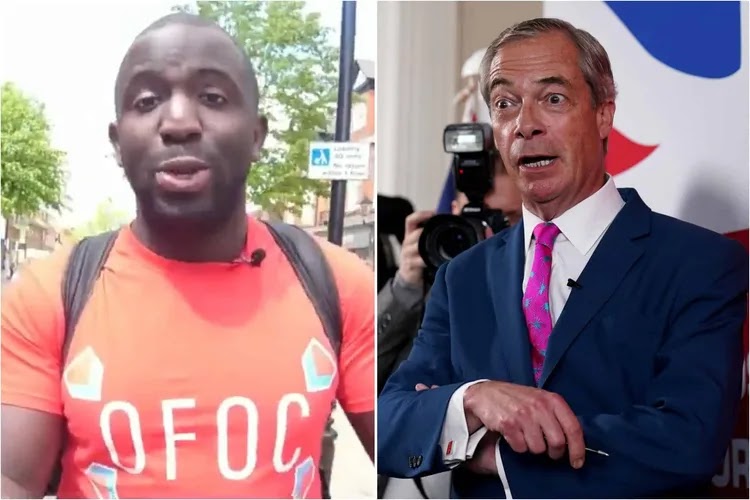So is Starmer tough enough to hit back? Prime Minister sets May deadline for a UK-US trade deal... or tariffs on our own
Proper news from Britain - News from Britain you won’t find anywhere else. Not the tosh the big media force-feed you every day!
Keir Starmer last night signalled he is ready to impose retaliatory tariffs on the United States as soon as next month unless he can secure a trade deal with Donald Trump.
The Prime Minister said he was still focused on getting a deal with President Trump that could spare British firms the worst impacts of the US tariff blitz.
But, in a toughening of the UK’s stance, he set a May 1 deadline for a consultation on launching a tit-for-tat response – and published a 417-page dossier of US goods that could be hit.
Sir Keir said he would not ‘jump into retaliatory action with both feet at the get go’.
But, in the wake of Wednesday night’s bombshell announcement from the White House, he added: ‘I accept that we need to go further. I accept that we need to preserve our options, which is why all options are on the table.’
Mr Trump’s decision to levy 10 per cent tariffs on British imports – with 25 per cent levies on cars and steel – threatens to derail Labour’s economic plans, and increases the risk that Rachel Reeves will have to raise taxes or cut spending at the autumn Budget to meet her fiscal rules.
The Office for Budget Responsibility warned this week that the Chancellor’s fiscal headroom would be ‘knocked out’ in the event of a trade war.
In a downbeat assessment yesterday, the PM said there would ‘clearly be an economic impact from the decisions the US has taken both here and globally’.


He said ‘big progress’ had been made on a trade deal, which ministers had hoped to agree before Mr Trump’s ‘Liberation Day’ announcement on tariffs.
Ministers fear the US President could even announce further tariffs in the coming days, with the pharmaceuticals sector a likely target. Business Secretary Jonathan Reynolds said the launch of a consultation on retaliatory tariffs was a ‘formal step, necessary for us to keep all options on the table’.
He said businesses would have until May 1 to ‘have their say and influence the design of any possible UK action’ including ‘products that could potentially be included in any UK tariff response’.
He added: ‘If we are in a position to agree an economic deal with the US that lifts the tariffs that have been placed on our industries, this request for input will be paused, and any measures flowing from that will be lifted.’
Downing Street declined to set out the likely impact of Mr Trump’s tariff package on UK exports. But economists have suggested they could affect around 70 per cent of the UK’s £60billion annual exports to the US.
The European Commission yesterday said it expected tariffs to impact 70 per cent of its own US exports, worth £320billion. Tory peer Lord Hannan described the tariffs as ‘bats*** crazy’, adding: ‘They will cause a recession.’
Shadow trade secretary Andrew Griffith urged ministers to find other ways of easing pressure on British business, including ditching the controversial Employment Rights Bill.
He told Mr Reynolds to ‘put ideology aside, put the unions on hold and put the Government on the side of British business’.


Lib Dem deputy leader Daisy Cooper urged ministers to work with the EU on others on a massive retaliatory package. ‘If the Government give in to Trump’s threats, it will only encourage him to use the same bullying tactics again and again,’ she said.
Mr Reynolds yesterday published a 417-page list of US products that could potentially be hit with tariffs, covering everything from motorbikes and rollercoasters to beef and bourbon, leaving open the possibility that iconic US brands such as Harley-Davidson and Jack Daniel’s could be affected.
Tariffs of 25 per cent on British car exports to the UK came into force yesterday, while those on steel and aluminium have been in place since February.
The blanket 10 per cent rate will take effect tomorrow.
Mr Reynolds yesterday told MPs that the Government was also poised to act if Mr Trump’s global trade war resulted in cheap goods destined for the US market being ‘dumped’ in Britain.
He said the Government would be ‘extremely vigilant’ about domestic suppliers being undercut, and said ministers had already used quotas and tariffs to protect the British steel sector.




.jpg)
